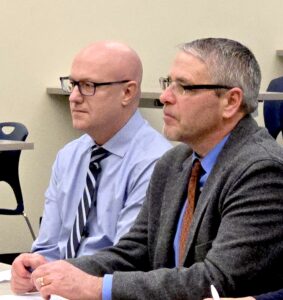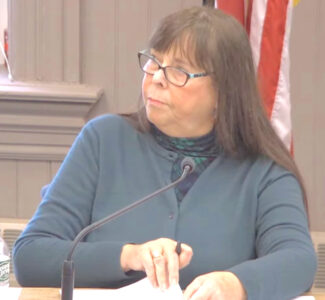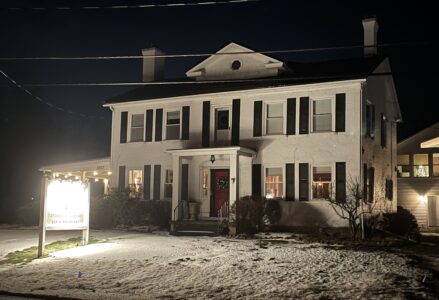Chautauqua season virtual this year
Chautauqua Institution has announced that its 2020 Summer Assembly will take place virtually.
The institution’s board of trustees met on Friday for their regular business meeting and voted unanimously on a resolution calling for “no in-person programming on the grounds” for this upcoming summer as a precaution resulting from the outbreak of COVID-19. Rather, usual summer programming will convene online daily throughout the summer aiming to present “a multi-dimensional online experience in lieu of the on-grounds Summer Assembly as a means of continuing to serve its patrons and fulfill its mission to explore the best in human values and enrichment of life.
“We gave very serious consideration to a number of scenarios, from proceeding with the Summer Assembly as planned, to completely shutting down operations,” said Candy Maxwell, chair of the Institution’s Board of Trustees. “The information and analysis pointed clearly to this decision. As challenging as it is to imagine a summer without the opportunity to physically gather at Chautauqua, we are focused on navigating the next several months in the most careful way possible to emerge on the other side of this pandemic strong and prepared to serve our many patrons and constituencies well into the future.”
The decision ensures that the assembly will convene — albeit in a different way than usual — just as it has every summer since 1874.
“We started our planning with the aspiration to find a way to assemble. While we will not be able to safely do that in the traditional sense, we will bring people together online to engage around some of the most critical issues of the day,” Chautauqua Institution President Michael Hill said.
“Many of our planned 2020 programmatic themes are emerging as even more critical amidst the pandemic crisis, and we are excited to explore these conversations with Chautauquans, new and familiar,” he added.
The decision by the institution not to convene in person, however, is one that has the potential to affect the local economy — something that was not lost on the board of trustees, according to Hill.
“We know we’re a feeder for local businesses and we take that really seriously and very honestly, that deliberation in the deliberations with our board was a serious one,” he told The Post-Journal following a live-streamed Q&A session Saturday morning. “It breaks our heart making what we feel is the right decision that we know will have a negative impact on local businesses. What that leaves us to do, though, is to double-down on something I’ve said since I came here, which is to turn our gates into gateways. We are going to try even harder to be a good partner in this county.”
Hill explained during the broadcast that in order to cut costs, the institution has, among other measures, implemented a non-essential hiring freeze — something that will affect dozens of seasonal workers who help operate the grounds each summer. However, according to the release, depending on government and health regulations, the institution may “operate a limited range of facilities and services, such as dock installation and service, recreation facilities, and food service, targeted for property owners.”
“One of the tricks and challenges of this is that we don’t know what the state will permit in the coming summer months,” Hill said, emphasizing the institution’s strict adherence to state and CDC guidelines regarding the current pandemic. “If there is the potential to safely open, we will be staffing those services. I can’t predict numbers on that, because I just don’t know which services will or won’t be open, but my hope is that there will still be some seasonal hiring that will provide relief for what we know is a growing unemployment pool in the county.”
In making the decision, Hill said he consulted with various government and state leaders including state Sen. George Borrello, R-Sunset Bay, who along with Assemblyman Andrew Goodell, R-Jamestown, has been a vocal proponent of re-opening Western New York.
“I have a tremendous amount of respect for Michael Hill and the job he’s done at Chautauqua. He’s been very helpful and a great leader and really help to bring a better and more productive relationship between the community and the institution,” Borrello said.
“This is a sad and difficult decision, but one I understand that they had to based on the information they have now,” he added. “It’s going to have a negative impact on our economy because Chautauqua Institution is a major force for us economically and culturally. I understand their decision, though, and I respect it and I know that they will continue to do what they can to be an important part of our community and I will assist in any way possible to achieve that goal.”
“One of the things that we, as leaders, have shared in conversations is that COVID-19 was nothing that any of us did,” Hill said of his conversations with Borrello and Goodell. “This wasn’t a decision that any of us made to harm anyone else. It was a global surprise that we have all been doing our best to manage with integrity and moral clarity and I think they understand that’s the place from where our decision has made and I deeply respect and understand their desire to do whatever they can to not only protect the residents of this county and region but to provide the economic relief that I know is necessary.”
While patrons of the institution will not be able to gather in person, Hill explained that plans are underway to offer as much programming as possible online. Those offerings will be announced in the coming days and weeks.
“The acknowledgment that us not convening a traditional audience and what that would mean for the county and the region and we take all of that really, really seriously,” he said. “Next to that, however, is a not-insignificant hope and enthusiasm for this new space that we’re going to enter into. A challenge that we accept to pull as much of the Chautauqua experience into a dynamic online platform as is possible. For those of us who have been working on this, we have to move from grief to hope to enthusiasm really quick because there’s a lot of work to do and it’s work we’re really excited about. I think and I hope that it will surprise and delight people.”
Additionally, the grounds of the institution will remain open, but gates will be monitored and property owners who wish to return have been asked to quarantine for 14 days out of precaution.
“There will be no charge to come through the gates this summer,” Jordan Steves, Director of Strategic Communications and Community Relations, said. “However, gate and screening procedures that comply with relevant guidance and directives will be in place throughout the summer, including potential limits on what types of activities people may enter the grounds to pursue. As with everything, the specifics of those protocols will change as the situation does.”
And while Saturday’s decision will have a lasting impact on the economy, Hill said it re-affirms his mission to turn the institutions “gates into gateways.”
“Chautauqua Institution is an institution of Chautauqua County,” Hill said. “We are going to try even harder to be a good partner in this county. We are in this as an equal, active member of this community and everything we do from here-on-in will have a lens of helping as much as we can as a citizen of this county.”




